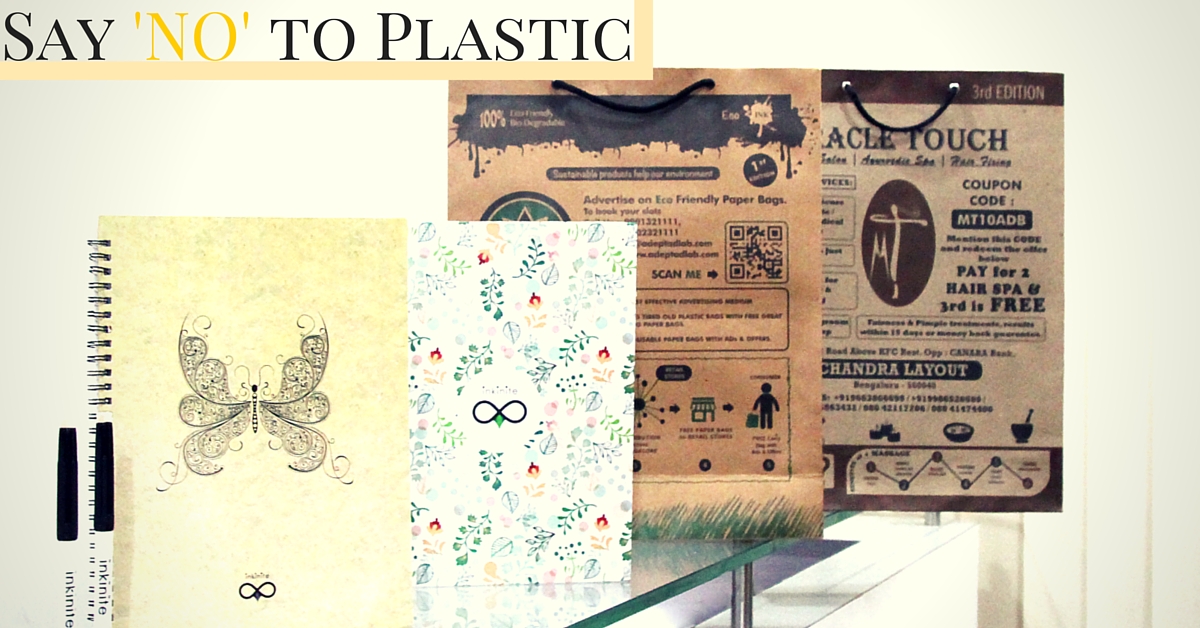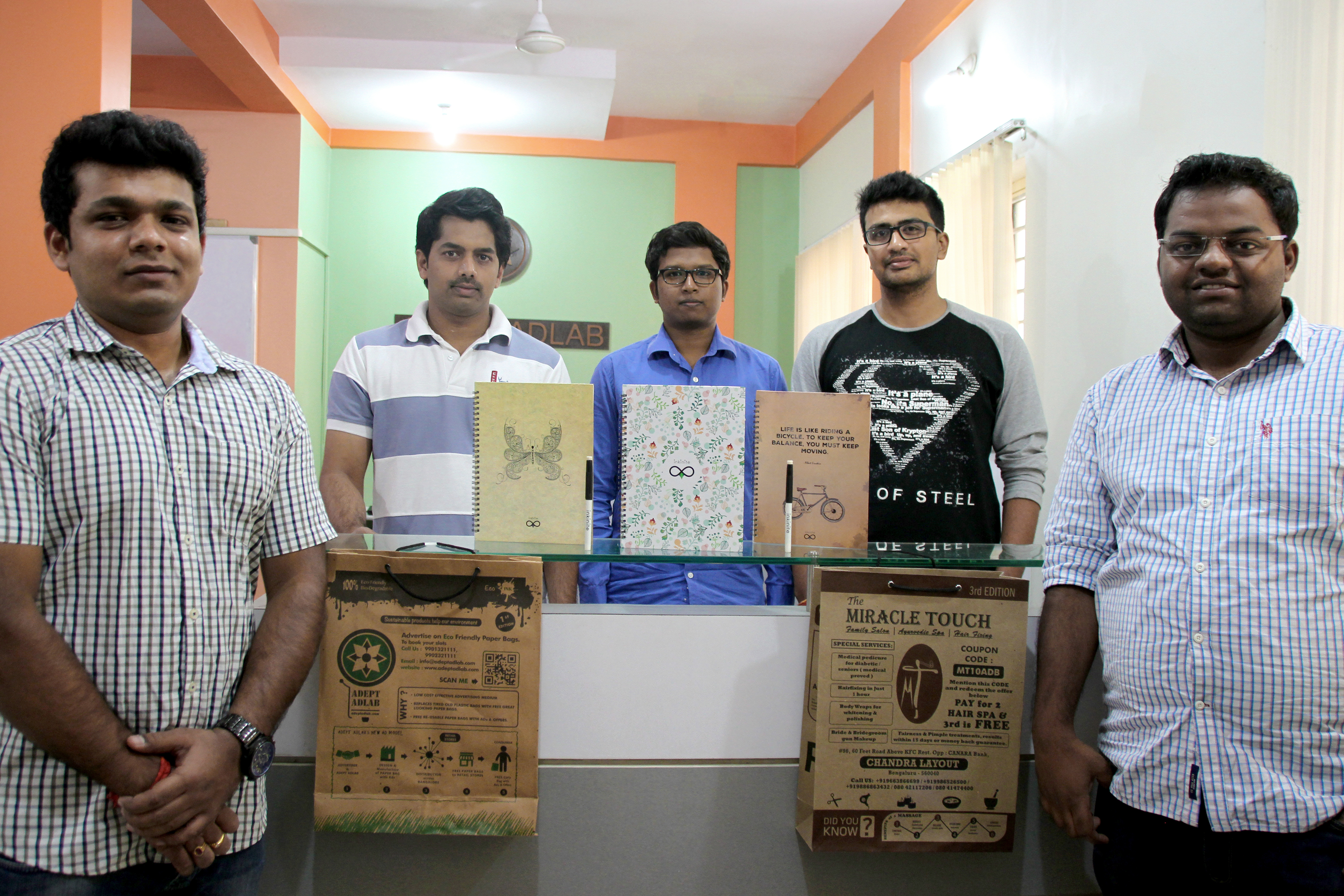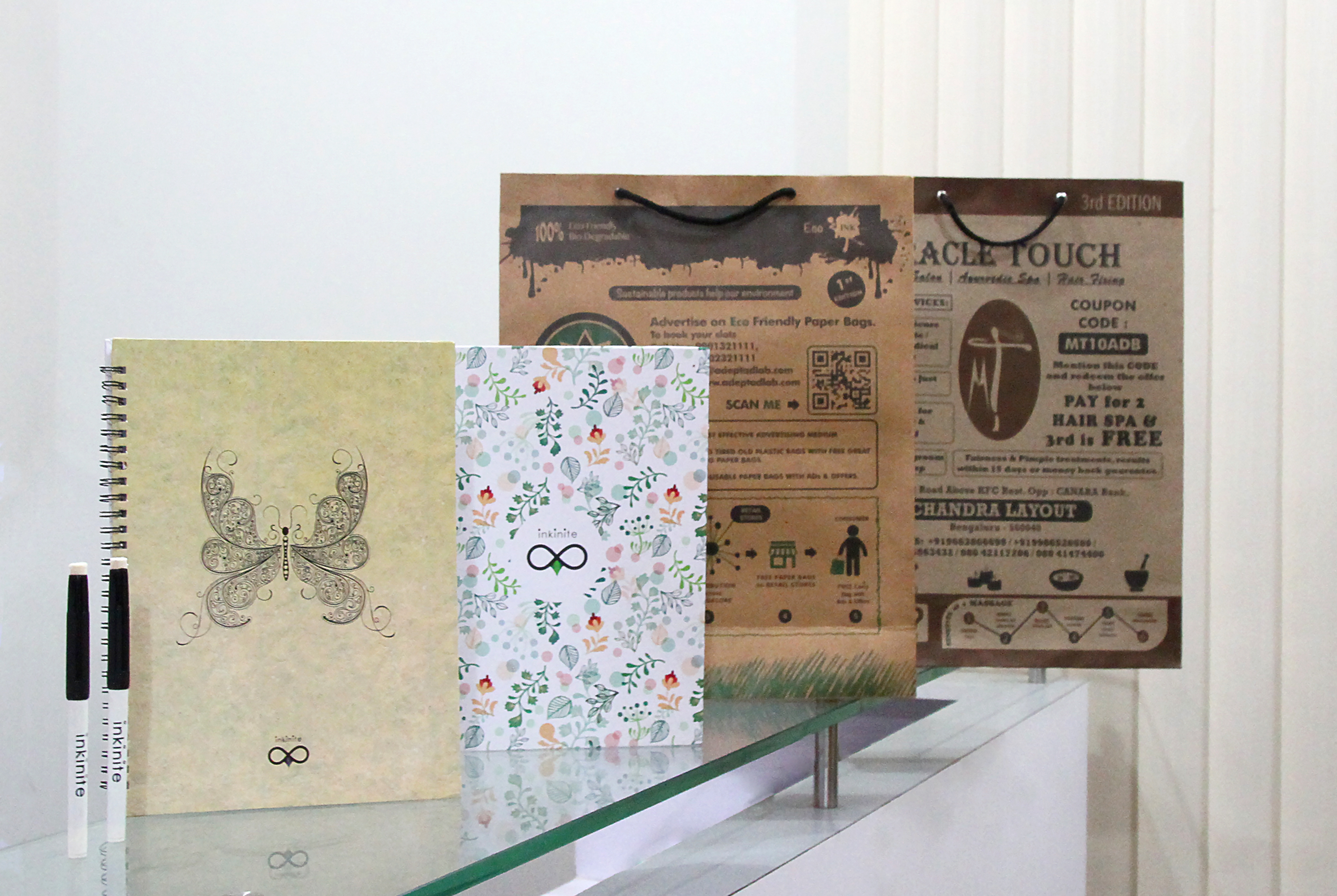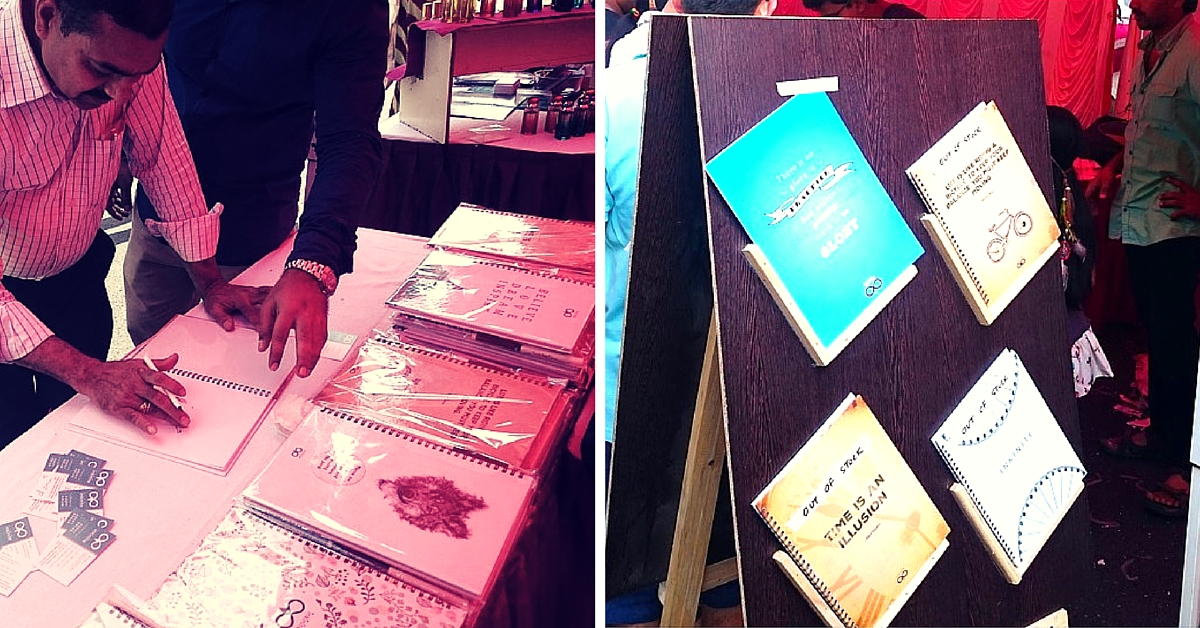Survive the Bengaluru Plastic Ban With These Rewritable Notebooks and Innovative Paper Bags
Five enterprising youngsters from Bengaluru have come up with two innovative methods to reduce wastage of paper and save trees: re-writable notebooks, and printing ads on paper bags instead of pamphlets.

With the plastic ban all set to be implemented in Bengaluru, five enterprising youngsters have a timely solution that redefines the way we use paper and plastic.
Annoyed by how pamphlets are an ineffective and environmentally irresponsible way of advertising, Sandeep Venkatesh, Chandan Chandra, Manjunath Pandian, Nitin Jagadish, and Vinod Devraj got together to start something innovative that would help reduce the wastage of paper. Taking inspiration from an Australian paper bag company, they conceptualised a paper bag that would carry advertisements originally meant for pamphlets. These bags would be given free of cost to groceries and shops so they could use them instead of plastic bags.
Sandeep, Manjunath and Nitin are childhood buddies who met Chandan during their engineering days. They finished college in 2014 and teamed up with Vinod, Sandeep’s brother, to form Adept Adlab a year ago.
The team of five launched their first eco-friendly project with mild apprehensions, but were backed by their parents.

Their new ‘adbag’ concept is a win-win situation not just for advertisers and grocery stores but also for the environment.
Paper bags can be expensive but the team has a way out. “The paper bag is divided into three slots, which are given to different companies as ad space,” says Sandeep. “The cost of printing ads on the entire paper bag is Rs 10 per bag. This is why we encourage two or three companies to advertise on one bag, so that the cost is divided.”
“These bags can be reused over and over again,” adds Chandan.
With this model in mind, the five of them set about approaching companies. After convincing them, the next step was to design the advertisement and then prepare for its production. The team also works on setting distribution networks in targeted areas. And they do all of this on their own.
Ensuring that no two conflicting businesses advertise on the same bag, they also provide QR codes or coupon codes of offers given by the companies on the bags, which encourages consumers to use the bags for the codes.
Though the initiative was launched seven months ago, it has been slow to pick up. Most companies aren’t sure of its results.
“Even though they know that pamphlets aren’t really working out, they don’t want to try out a new medium,” says Chandan, “It costs nearly as much as pamphlets but has the potential for a better reach and is eco-friendly.”
While some are apprehensive about sharing space with other companies on the same bag, others aren’t ready to invest in the idea just as yet.
“For this model to work out, we need production on a larger scale, around 50,000 bags,” Sandeep explains. “But most companies are hesitant and want to start with just 1000 bags.” For achieving better reach and results, starting out with that low a number won’t help, he adds.
So far, the project has been a success in Malleshwaram, Chandra Layout, Kamanahalli, and Vijaynagar areas of Bengaluru.
While this concept was being developed, the team hit upon another idea: reusable notebooks.
“Rewritable notebooks are like portable whiteboards,” says Chandan.

Launched in February, Inkinite saves trees by reducing the usage of paper notebooks.
The sheets are made of whiteboard material and the pens have a fine tip to enable smooth writing or sketching. The books have blank pages, ruled pages, to-do list pages, and mind-mapping areas.
“Our main aim is to replace working sheets in schools and corporates,” says Sandeep. “The wastage of paper there is phenomenal.”
Not one to compromise on quality, the team is still experimenting with various manufacturers and looking for the ones that can do the best job. They also manufacture their own fine tip markers with erasers to go along with the notebooks.
In an Open Street event at MG Road earlier in February, almost 750 books were sold out in less than two hours. “That was an amazing response,” says Chandan, “We also sold many books at another event at Chitrakala Parishath last week.”
“People find this notebook really useful,” Sandeep adds, “Many ladies asked us to introduce pocket-sized books that could fit into their handbags. We plan to work on that too.”
The stock that they expected to last for a month sold out in a day.

They also got a great response from selling online on Flipkart and Amazon. And they haven’t even begun marketing the notebooks yet.
They also plan to give away some of these notebooks to government schools around Bengaluru. “Some books are rejected due to minor damages such as printing errors,” explains Sandeep, “So we rectify these errors, and then donate them to schools for free.”
Manjunath, their in-house designer, works on coming up with attractive designs for the notebook covers. He also designs the advertisements on the paper bags.
Currently, they work out of Sandeep’s father’s office. “My father has been our mentor, while all our parents have supported us,” he says. Besides helping out with the initial funding for the projects, they’ve encouraged the boys throughout, even though they had their own doubts. He adds, “That was a major push for us or we wouldn’t have survived till now. Before stumbling on to this notebook idea, we would have lost all hope if it weren’t for them.”
For the boys, the driving factors are not the money they make or the sales they achieve. “We are happy we’re making an actual difference to the environment,” Sandeep says.
“We can’t compare the benefits of plastic bags against paper bags. Plastic is way better than paper until pollution comes into the picture. Using paper bags can reduce the environmental hazards we are creating.”
They’re optimistic that the paper bag concept will pick up soon. Owing to the plastic ban, there’s a likelihood that people will be more open to using paper bags. “I think Bangaloreans are adapting to new methods of being eco-friendly,” he concludes.
Like this story? Or have something to share? Write to us: [email protected], or connect with us on Facebook and Twitter (@thebetterindia).
This story made me
-
97
-
121
-
89
-
167
Tell Us More
If you found our story insightful, informative, or even just enjoyable, we invite you to consider making a voluntary payment to support the work we do at The Better India. Your contribution helps us continue producing quality content that educates, inspires, and drives positive change.
Choose one of the payment options below for your contribution-
By paying for the stories you value, you directly contribute to sustaining our efforts focused on making a difference in the world. Together, let's ensure that impactful stories continue to be told and shared, enriching lives and communities alike.
Thank you for your support. Here are some frequently asked questions you might find helpful to know why you are contributing?



















